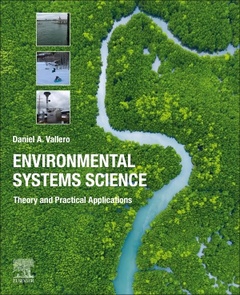Environmental Systems Science Theory and Practical Applications
Auteur : Vallero Daniel A.

Environmental Systems Science: Theory and Practical Applications looks at pollution and environmental quality from a systems perspective. Credible human and ecological risk estimation and prediction methods are described, including life cycle assessment, feasibility studies, pollution control decision tools, and approaches to determine adverse outcome pathways, fate and transport, sampling and analysis, and cost-effectiveness. The book brings translational science to environmental quality, applying groundbreaking methodologies like informatics, data mining, and applications of secondary data systems. Multiple human and ecological variables are introduced and integrated to support calculations that aid environmental and public health decision making.
The book bridges the perspectives of scientists, engineers, and other professionals working in numerous environmental and public health fields addressing problems like toxic substances, deforestation, climate change, and loss of biological diversity, recommending sustainable solutions to these and other seemingly intractable environmental problems. The causal agents discussed include physical, chemical, and biological agents, such as per- and polyfluoroalkyl substances (PFAS), SARS-CoV-2 (the COVID-19 virus), and other emerging contaminants.
Researchers, professionals and interested readers from numerous other fields, especially biomedicine, urban planning, architecture, construction, pharmaceuticals and consumer product manufacturers and users
- Provides an optimistic and interdisciplinary approach, underpinned by scientific first principles and theory to evaluate pollutant sources and sinks, applying biochemodynamic methods, measurements and models
- Deconstructs prior initiatives in environmental assessment and management using an interdisciplinary approach to evaluate what has worked and why
- Lays out a holistic understanding of the real impact of human activities on the current state of pollution, linking the physical sciences and engineering with socioeconomic, cultural perspectives, and environmental justice
- Takes a life cycle view of human and ecological systems, from the molecular to the planetary scale, integrating theories and tools from various disciplines to assess the current and projected states of environmental quality
- Explains the elements of risk, reliability and resilience of built and natural systems, including discussions of toxicology, sustainability, and human-pollutant interactions based on spatial, biological, and human activity information, i.e. the exposome
Date de parution : 05-2021
Ouvrage de 704 p.
19x23.3 cm



